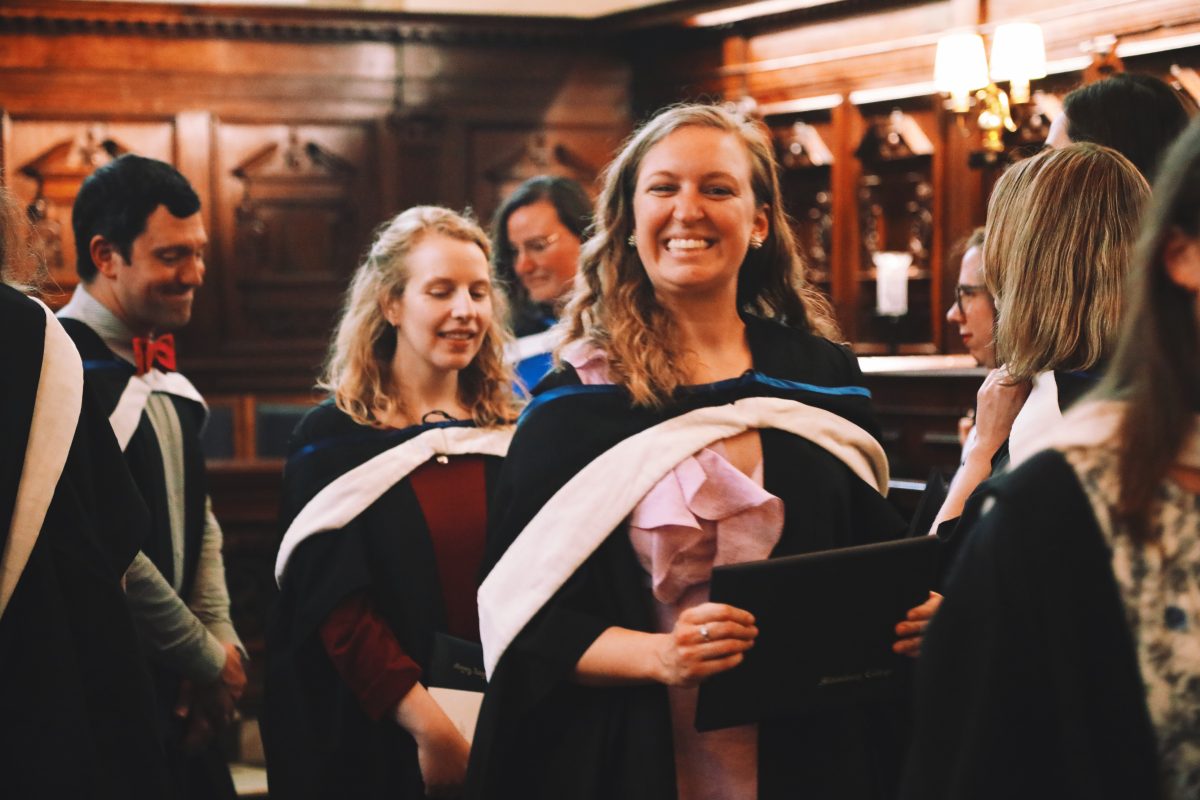This article was co-written by Deputy Editor-in-Chiefs Zack Longboy and Tyler Skow.
Both inside and outside of the classroom, living with her sister’s legacy was a reality for Julia. Even after her sister graduated, “there was this one teacher who still said ‘hi Audrey’ and I could never stop and say, ‘I’m Julia, Audrey went to college’,” she said. “I had it happen about five times in one year.”
For Julia, it always was a struggle to differentiate herself. “To my teachers, I would have to prove that I was an individual because they all knew Audrey,” Julia said. “ When you meet someone you have to learn who they are, but when you have an older sibling there is already an idea of the environment that you exist in, you have to prove that you had a different experience.”
“It’s just like you are living in a shadow,” Julia added.
The youngest of three brothers – Patrick Collins (’14) and Will Collins (’11) having come before him – Bobby Collins (’16) can relate to Julia. “I get called both Patrick and Will, sometimes teachers who I don’t know will say hello to me in the hall, especially when I was younger,” he said. “I got called Will, I got called Bill, even Billy.”
As an underclassman, however, it was the social scene where his brother’s legacies was larger than life.
Back then, Bobby and his friend, a former ASL student Freddy Marsh (’16) – whose older siblings included Henry Marsh (’08), Margaret Marsh (’09), Charlie Marsh (’14) and Clayton Marsh (’14) a friend of Patrick’s – often witnessed their brother’s antics, impressing upon Bobby and Freddy a desire to leave behind a similar legacy. “I kind of get the feeling that both Freddy and I wanted to be like our brothers,” Bobby said. “I feel like it’s hard to be just Bobby, rather than Patrick’s little brother… there was that expectation for me to be just like Patrick.”
It was only when Patrick graduated that Bobby felt he could begin to diverge, forge his own path and possibly rid himself of these expectations. “Patrick was a very, very influential figure in the High School. He was a presence [here] and I kind of felt like, as an underclassmen, that it was my expectation to have that same presence,” Bobby said. “Now as an upperclassmen I feel like that has kind of reduced.”
Enduring the academic pressure from the legacies left behind by siblings is Anna O’Neil (’17). O’Neil has two older siblings –who did not attend ASL– both of whom now attend Harvard University.
In light of her siblings’ academic achievements, the expectations of O’Neil, she feels, often verge on unrealistic. “I don’t know if it’s more me feeling bad about myself, but there are people looking at me worse because they are like ‘she’s not as good as her siblings,” O’Neil said.
The reaction to these expectations, at least for O’Neil, is academic conformity in certain disciplines. “I don’t know if I wanted to be like them, but my parents encouraged me to do things just because they did,” she said. “I take Chinese right now which I probably would not do if it were not for my siblings.”
Roxy Sammons (’17) – whose older siblings included Mungo Sammons (’11) and Ella Sammons (’14), – found the legacy that preceded her to be entirely positive. Highlighting an intrinsic difference from her sister – who overlapped with her for one year in high school – in their respective academic approaches, Sammons feels that living up to her sister’s accomplishments is less of an issue. “We just are very different students, I have never felt like I have had expectations placed on me by my sister,” she said.
While Roxy found herself sharing many teachers that had taught her older sister in years prior, she still felt treated as an individual. “I thought it really impressive that [my teachers] came in and taught me like any other student; adapting to my needs,” she said.
Yet for others, like O’Neil and Julia, the legacy only began to fade when the presence of an older sibling was no longer something that lived beside them. “In that sense it was kind of nice when [my sister] left, because I didn’t have to prove myself anymore,” Julia said. “I liked not being under that presence anymore.”
Julia Muio (’18) who has two older brothers – Nick Muoio (’16) and Will Muoio (’14) – is at the forefront of individuals trailing a sibling’s legacy with the various impacts manifesting themselves in her social, academic and extracurricular lives.
It is in athletics especially – given her brothers’ extensive athletic records – where she finds an increased expectation for her to perform. “One [brother] was a two-season athlete, and the other a three-season varsity athlete,” Julia explained.
While Julia made two JV teams last year, she will only be trying out for one this year, mounting the pressure to make it. The pressure to make “varsity this year is a lot more… because both of my brothers have been varsity athletes,” she said.
Not only does Julia believe her siblings’ legacy causes pressure for her athletic performance, but also in the way people perceive her in the High School.
Julia occasionally hears older students talking about her in a romantic fashion with the intention of irritating her brother. Julia often wonders if she did not have an affiliation with her brother, would they still make those comments.
Even though some people make uncomfortable remarks about Julia, she feels her brother stands up for her. “I feel like he protects me,” Julia said.
In addition to the existing perceptions of her socially, the legacy of the her brothers is present within the classroom. In a class Julia took last year, led by a teacher who taught both of her brothers, she found she had to work hard in order to define herself as an individual.
Julia found the expectations of her were based on the teachers experiences with her brothers. Because Julia identifies as a different learner than her brothers, she felt she had to go to great lengths in order to prove this to the teacher.
Head of College Counseling Patty Strohm, who frequently works with siblings through the college process, always tries to be aware – and potentially help avoid – incidents like the one Julia described. “The thing any teacher or counselor has to watch out for is that you always have to treat a sibling as an individual,” she said. “Brothers and sisters are not alike. They have different interests, they have different goals, they are not the same people.”
When Strohm works with siblings she occasionally notices “if certain things happen to [his or her] brother, they are just like ‘oh God, I just don’t want that to happen to me’,” Strohm said. “Or, ‘if my brother got in early [decision] and I didn’t then I am not a success’.”
But Strohm cannot stress enough the fact that “you can’t think that way, you have to go in with your own attitude. It requires a certain amount of discipline.”







